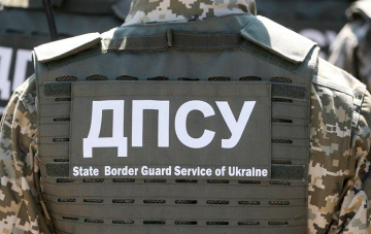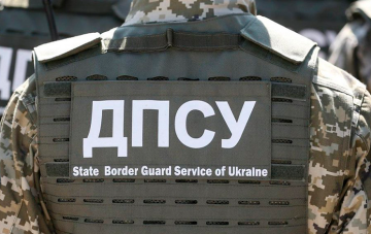Legal support for men with disabilities when crossing the border
Escorting men with disabilities when crossing the border during martial law is particularly important and requires taking into account additional legal and security requirements. Martial law imposes restrictions on leaving the country, in particular for men of draft age, but certain exceptions may be provided for persons with disabilities. Proper accompaniment includes not only the organization of medical care and comfortable transportation, but also legal support for obtaining a permit to leave. This helps to avoid possible difficulties when crossing the border, taking into account the specific rules in force during wartime.
Legal stages of accompanying men with disabilities abroad
It is important to consider all the necessary aspects and documents that allow for the correct approach to this process:
- Preparation of documents: Men with disabilities crossing the border may need certain documents to ensure security and legal crossing of the border. This may include a passport, medical documents, as well as special permits or certificates for persons with disabilities.
- Contact with border services: Before crossing the border, it may be useful to contact border services or other relevant authorities to obtain information about the necessary procedures and documents, as well as the possibilities of accompanying and assistance for persons with disabilities.
- Legal protection of rights: Legal protection of the rights of persons with disabilities is an important aspect when crossing the border. This may include protection against discrimination and providing access to all necessary services and procedures, ensuring safety and protection of rights in the territory of the country they enter.
- Accompaniment and adaptation: Crossing the border of men with disabilities may require special accompaniment and adaptation services during the border crossing. This may include access to disabled vehicles, border crossing assistants, and other measures to ensure safety and comfort.
- Adherence to international standards: Countries must adhere to international standards on human rights and the protection of persons with disabilities. This means that the rights and needs of persons with disabilities must be taken into account at all stages of border crossing.
All stages must be based on legal protection and compliance with international standards, which guarantees the safety and comfort of persons with disabilities.
Under what conditions can the service of accompanying men with disabilities when crossing the border be provided?
Main conditions under which such a service can be provided:
- Legality and compliance with legislation: Legal services must be provided in accordance with legislation and regulatory requirements relating to border crossing and the rights of persons with disabilities.
- Professionalism and experience: Legal advisers or legal aid professionals should have relevant experience, knowledge and professional qualifications in disability and border crossing issues.
- Accessibility and access to information: Legal service should be accessible to all persons with disabilities who need it and should provide appropriate information and advice on border crossing.
- Privacy and data protection: The legal service must guarantee the confidentiality and protection of personal data of clients, including all information related to their disability and border crossing.
- Adherence to the principles of ethics and professional conduct: Legal advisers must act in accordance with the principles of ethics and professional conduct, ensuring the highest level professionalism and caring attitude towards customers.
Only in such cases can the appropriate level of protection and accompaniment for persons with disabilities be guaranteed.
Under what conditions can the service of accompanying men with disabilities when crossing the border not be provided?
There may be a variety of factors that limit the ability to provide such assistance:
- Lack of necessary resources: In some cases, there may be insufficient resources (financial, human, material) to provide escort services for men with disabilities when crossing the border.
- Lack of an appropriate legal framework: Some countries may lack an appropriate legal framework that regulates the provision of escort services for persons with disabilities during border crossings, which may limit the provision of these services.
- Inadequate infrastructure: Infrastructure that is not suitable for transporting or accompanying persons with disabilities can make it difficult to provide an escort service when crossing the border.
- Refusal of a person with a disability: Sometimes a person with a disability may refuse the escort or border crossing service for various reasons, which may lead to the impossibility of providing the service.
- Political restrictions: In some cases, political circumstances may lead to restrictions or bans on the provision of escort services for men with disabilities when crossing the border.
It is important to consider all factors that may affect the availability of this service.
How can a man with disabilities cross the border on his own?
Given the complexity of the issue, it is important for men with disabilities to know how to act independently during the border crossing process:
- Research the law: Start by researching the laws and regulations that apply to border crossings for people with disabilities in your country and the country you plan to travel to. This will allow you to understand the basic rules and requirements.
- Search for information on the Internet: Use the Internet to search for information about border crossing services for men with disabilities of group 3. Many countries and international organizations have websites with detailed information about this.
- Consultation with authorities and international organizations: Contact authorities, such as the consulate or migration service, or international organizations that provide assistance to people with disabilities, for specific information and advice.
- Contacting a lawyer or human rights professional: If in doubt or having difficulties, contact a lawyer or other human rights professional who can provide legal advice and help in understanding your rights and options.
- Contact disability organizations: Contact disability advocacy organizations that may be able to provide useful information and support.
Although the issue of border crossing can seem complicated, with the right information and preparation, it is possible to ensure a safe and legal process.
Recommendations for preparing for border crossing independently for men with disabilities

Planning in advance: Well in advance of your planned border crossing, make sure you have all the necessary documents and a clear understanding of what additional services may be needed.

Researching your rights and opportunities: Familiarize yourself with the rights of persons with disabilities in the country you are traveling to. Check the websites of consulates and other organizations.

Contacting support organizations: Enlist the support of organizations working with people with disabilities for additional advice, resources, or assistance during the border crossing process.
Common questions about accompanying men with disabilities when crossing the border
Question
Are there special services or programs for accompanying persons with disabilities during border crossing?
Answer
Yes, there are special services and programs to accompany persons with disabilities, including border crossing escorts, especially when it concerns a spouse traveling with a disabled child. Some railway and bus stations may provide escort and assistance services for persons with disabilities traveling with disabled children. Some airlines and tour operators may provide special medical assistance services for disabled children during travel.
Question
What documents or certificates are required to prove the status of disability and the need for accompaniment?
Answer
A medical certificate or certificate of disability, documents confirming personal data, an application for an escort or a special request. Certificates or documents about the escort: If the escort is carried out by special services or organizations, it may be necessary to have the appropriate certificates or documents about it.
Question
What rights and protections are guaranteed to men with disabilities when crossing borders, including protection against discrimination and neglect?
Answer
Men with disabilities may be entitled to escort or support when crossing the border, depending on their needs and capabilities. Men with disabilities have the right to access transportation, including air, rail, road, and sea transportation. Travel organizers and carriers must ensure the availability of information about services and conditions of transportation for persons with disabilities.
What does the cost of the service of legal support for men with disabilities when crossing the border depend on?
The cost depends on several key factors. First of all, this is the need to obtain special permits for departure, as there are restrictions for men of draft age, and in case of disability there may be exceptions. Also important are the costs of organizing medical support, special transport and assistance in passing customs and border procedures. In addition, the cost may vary depending on the complexity of the paperwork, the urgency of departure and the need for legal support to resolve issues related to the legal restrictions of martial law.
ConclusionIn general, it is important to understand that the provision of escort services for men with disabilities when crossing the border requires an appropriate legal and organizational approach. In order to successfully complete all stages, it is necessary to comply with legislative requirements, ensure the appropriate level of accessibility and support, and also take into account the individual needs of persons with disabilities. This will ensure comfort and safety when crossing the border, as well as help avoid potential problems that may arise in the process.








































